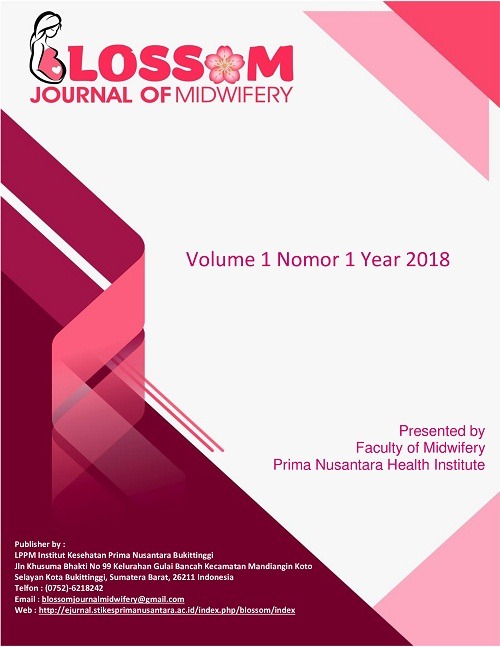Effectiveness of Deep Back Massage as Pain Relief in Active Phase of Labor
Abstract
pain during the first stage of labor is caused by contractions of the uterine muscles, hypoxia of the contracting muscles, cervical stretching, ischemia of the uterine body, and stretching of the lower uterine segment. This study aims to determine the effect of deep back massage techniques on reducing the intensity of labor pain during the active phase of primiparous mothers in BPS (Midwife private practice) "YL" in 2018. The design of this study is quantitative while the type of research used is quasi experimental research (quasi experimental research) with a design. one group pretest-posttest design, which was conducted at BPS (Midwife private practice) "YL" in 2018.The sample of this study were 10 primiparous mothers. The data analysis method used to test the hypothesis is the paired sample t-test. The results show that the p value = 0.000 with a standard deviation of 0.944 was obtained. So based on the analysis of research data, it can be concluded that there is an effect of deep back massage techniques on reducing the intensity of labor pain during the first stage of the active phase of primiparous mothers at BPS (Midwife private practice) "YL" in 2018. Deep back massage therapy that has been given should be an input that can increase the mother's knowledge. on how to deal with pain when going into labor (stage I), so that you can practice these techniques with other families or neighbors in dealing with pain during labor.




